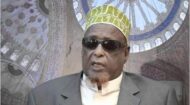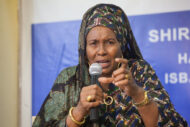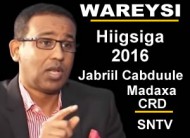The two faces of power – Mohamed Morsi and Hosni Mubarak: Critics of the Muslim Brotherhood accuse the President of having created a dictatorship under the guise of religion in Egypt
Commentary by Ilyas Harfush: “Muhammad Husni!”
If any observer wanted to summarize the situation of the present Egyptian regime, and compare it to what preceded it before the Revolution of 25 January, he would not find any “error” better than the one committed by Palestinian President Mahmud Abbas, when calling the current Egyptian president by the name of “Muhammad Husni.”
If many people consider that Abu-Mazin committed an error in the articulation of the name of the Egyptian president, during the speech he gave before the Islamic Summit in Cairo, on my behalf, I have found in this “error” a slip of the tongue similar to what is called in the language of psychology “lapsus.” This “slip of the tongue” reveals more than it harbors regarding the reality of the image that the Palestinian president wanted to draw of what has been happening in the land of the quiver (a name for Egypt given by Prophet Muhammad), after the fall of the regime of Husni Mubarak.
These days, if you were to ask the majority of the Egyptians, who are not benefitting from the current regime, or the people, in the name of whom this regime is not governing, they would agree with the “error” that Abu-Mazin committed when articulating the name of Muhammad Mursi. Furthermore, they would say that the regime of Mursi does not differ greatly, as far as its practices are concerned, from the regime of Husni Mubarak. As the saying goes: “It is business as usual.” The reason is not just the failure of post-revolution governance to satisfy the demands, desires and slogans that were pronounced two years before in the Al-Tahrir Square. These demands need, by everybody`s admission — including the people opposed to the current regime — time to satisfy them and bring Egypt from one state to another. The issue even goes back to something before that, to the violent, harsh practices of the security forces, as has emerged lately in the behavior of the members of the police in Cairo, Alexandria and other cities toward demonstrators. It also goes back to the blundering in the making of presidential decrees — giving the impression that there is more than one authority behind these decisions — in addition to the corruption that still reigns in different locations of the Egyptian administration.
In this sense, and in the framework itself, it is possible to speak about “Hamadi Ben Ali” when observing what is happening in Tunisia. Therefore, the accusations of betrayal, which fill the speeches of a number of officials within the Ennahda Movement toward the members of the opposition, along with the threats of pursuit and killing pronounced by extremist groups and parties described as Salafis — while none of these threats has been seriously condemned by the current authority — all indicate that the reigning political atmosphere in Tunisia that led to the assassination of opposition member Chokri Belaid, does not differ — except from a structural point of view — from what was reigning during the era of the overthrown Tunisian president, during which not one member of the opposition had been murdered in the streets of Tunisia.
The issue is linked, finally and simply, to the understanding — by the two current regimes in Egypt and Tunisia — of the meaning of democracy, how it is applied, and the extent of their respect for it. This is because it is not enough for the ruling authority in Tunis and Cairo to announce that they are standing on the debris of dictatorial rule, and that they have arrived to power through the ballot box. All of this, of course, is wonderful, and welcome. However, what is more important is the extent of the capacity of the (current) authority to open itself up to the opposing voices, to listen to them and to use them if the authority finds in them a correction for its errors. On the other hand, considering the authority free of error, and considering all of its resolutions above questioning — to the extent that some even see these resolutions as divine revelation — is an attitude that leads to the previous practice we were familiar with during the eras we thought we had gotten rid of.
(Description of Source: London Al-Hayah Online in Arabic — Website of influential Saudi-owned London pan-Arab daily. URL: //www.daralhayat.com)
© Compiled and distributed by NTIS, US Dept. of Commerce. All rights reserved.

 All Posts
All Posts










